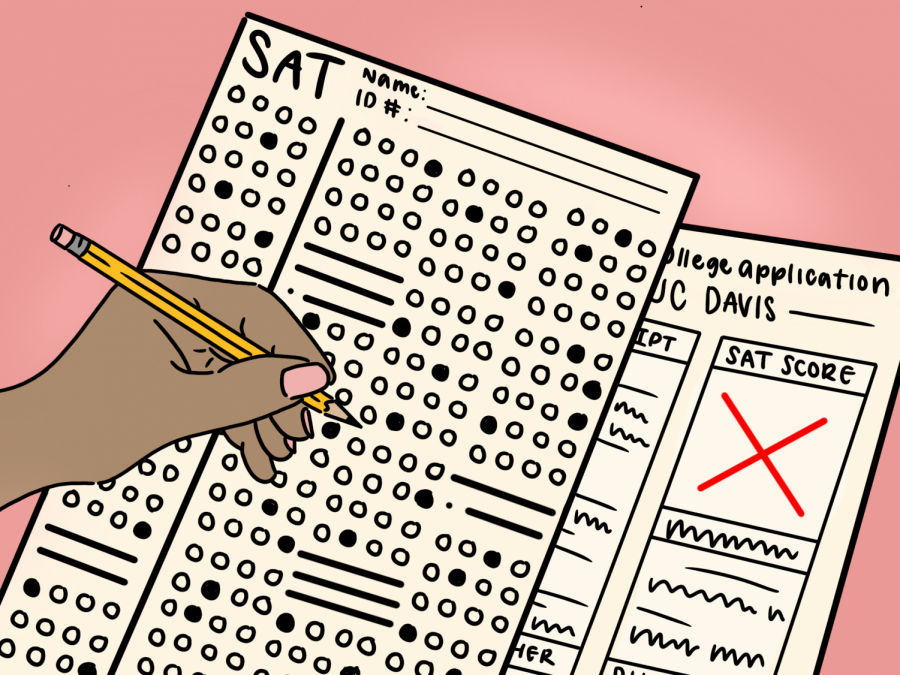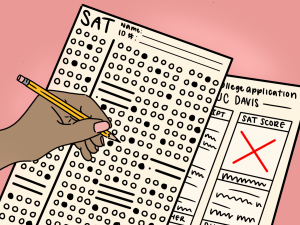PRO: Pros and Cons of the UC System going test-blind to SAT and ACT scores
UC System goes test-blind to SAT and ACT scores for college applicants.
September 10, 2020
On Monday, Aug. 31, California judge Brad Seligman issued a preliminary injunction requiring University of California campuses to go test-blind in admissions during the COVID-19 pandemic, according to insidehighered.com. While this is progress in achieving a more equitable college admissions system, it is a short term fix for an issue that requires a lasting solution.
The UC system has suspended the standardized test requirement for all California freshman applicants until fall 2024 and intends to develop their own test. Many other colleges and universities have waived standardized test scores from their 2021 and 2022 applications as well. Yet for students who managed to obtain a coveted testing slot, the option to submit their scores only increases their odds of admission. Thus, a test-blind policy is the only way to ensure equity between all applications.
Although some UC campuses have gone test-blind, many campuses are accepting scores, giving students a “second look.” Essentially, if a student may not be accepted based on their application alone but their test score sways the admissions decision, that is an edge over those who were unable to test. Students who have already taken the SAT or ACT and scored well are likely eager to submit their scores. However, this option is unfair to any students who are unable to obtain accommodations for disability, or who simply cannot find any open testing sites in time to submit their applications.
Standardized testing has faced increasing pressure to develop more equitable methods, as studying for the SAT and ACT is almost necessary to receive a competitive score. Furthermore, the tests are pricey, especially if one chooses to test more than once. Of course, fee waivers are available for low-income students, as are accommodations for disability. At SCHS, students are able to take each exam once at no cost, a luxury not every school provides.
The SAT and ACT are quickly becoming a less-than-optimal method of determining qualifications for college admission. Students are forced to direct part of their attention to an additional exam when they could be taking in-depth classes, or gaining real-world experiences. The focus should be on creating a system to accurately measure student GPAs, and placing a greater emphasis on extracurricular activities and enrichment. Instead, students have yet another test to study for.
While this new ruling is a victory for equity and fairness among UC applicants, it does not solve the larger issue that standardized tests, such as the SAT and ACT, are naturally skewed in favor of students who are more socio-economically privileged. All colleges and universities should give serious thought to phasing out these tests and creating a more equitable admissions system. The injunction barring UCs from considering standardized tests scores in admissions is a step in the right direction.



